 Bella Murfin is the Director for the Nature for Climate Fund Tree Programme in the Department for the Environment, Farming and Rural Affairs (Defra). This is her final blog in the role.
Bella Murfin is the Director for the Nature for Climate Fund Tree Programme in the Department for the Environment, Farming and Rural Affairs (Defra). This is her final blog in the role.
Back in 2021, at the tail end of national lockdown, Naomi Matthiessen and I wrote our first ever blog, looking back at our first year leading the Nature for Climate Fund (NCF) Tree Programme. It’s therefore fitting that I end my tenure as the head of ‘Team Trees’ with another one, reflecting on what’s happened since then and all the new challenges and opportunities ahead.
One of most exciting moments for the Programme was this June’s publication of the provisional Official Statistics showing that a record 5,529ha of new trees and woodland were planted last year. That’s 52% more than in 2022/23, and a massive 169% uptick since the programme began. Villages, towns and cities right across the country are starting to benefit from the value and impact of trees planted under NCF.
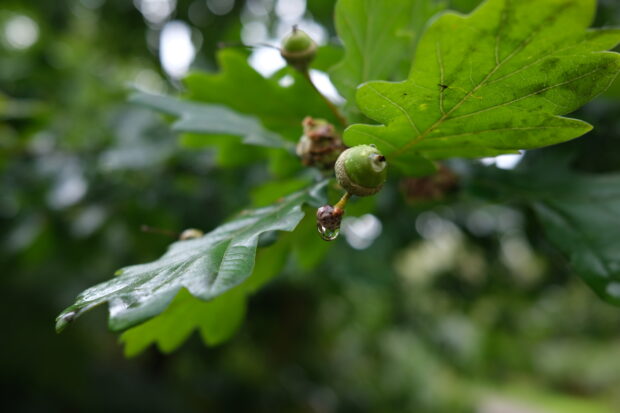
The last few weeks have also brought us a new government and we’ve been welcoming new ministers here at Defra. It’s the start of a new era.
It seems like a lifetime ago when we launched our consultation on the England Tree Strategy in the summer of 2020, inviting foresters, farmers, scientists, environmental organisations and members of the public to shape the vision for trees in England. Following this, the England Trees Action Plan was born, setting out the roadmap towards planting, establishing and managing more trees in the right places to deliver their many benefits.
We have come a long way since then to increase national tree planting against the headwinds of the global pandemic and impact of the war in Ukraine. We have also had to negotiate our way through the challenges thrown up by climate change and have responded to this by making woodlands planted under NCF more resilient to rising temperatures and the increased risk from pests and diseases that this can cause.
How we grew our delivery network
Back in 2020, when the budget was allocated, we didn’t have a fully-fledged team, a programme plan, or a delivery network. To make best use of NCF to help us reach net zero and tackle nature’s decline, we needed to reinforce our existing partnerships and to forge new ones. I’ve got so much out of working with the web of partners who have a stake in England’s treescape.
We very deliberately tested different approaches, including our national England Woodland Creation Offer (EWCO) run by the Forestry Commission. This incentivises farmers and land managers to invest in woodland creation, to mitigate climate change and restore nature, and for wider environmental and social benefits. Through a combination of spatial targeting and design requirements, EWCO has delivered to ensure the greatest good from flood mitigation to public access and biodiversity enhancements. It’s been continuously improving through the dedication of staff delivering it, and the ongoing feedback from users and their representatives.
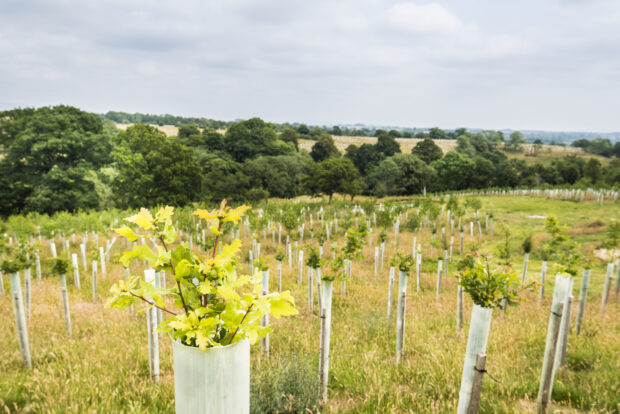
The other big project getting trees in the ground has been our Woodland Creation Partnerships (WCPs), supported by the Forestry Commission’s regulatory teams, who between them, have created around half of the hectares of new woodland funded by the Programme using a more bespoke funding model.
England’s Community Forests have expanded and transformed that network, growing to a group of 15 across England, doing great things with local teams providing excellent support to people who are considering planting trees.
The Northern Forest Partnership, the Great Northumberland Forest, Forests for Cornwall, and the National Forest Company have all contributed significantly, in different ways. They’ve also worked to support a wide variety of landowners meet their objectives, through tree planting led by more local organisations, accountable to their communities.
NCF tree planting has started to improve local environments for their communities. Woodland Creation Partnerships and an expanded Forestry England public forest estate have created more access to nature, including planting closer to where people live, in and around urban areas. We have funded large scale planting and rewilding to help manage water run-off from the uplands, while enabling nature’s recovery. Tens of thousands of people have been planting trees.
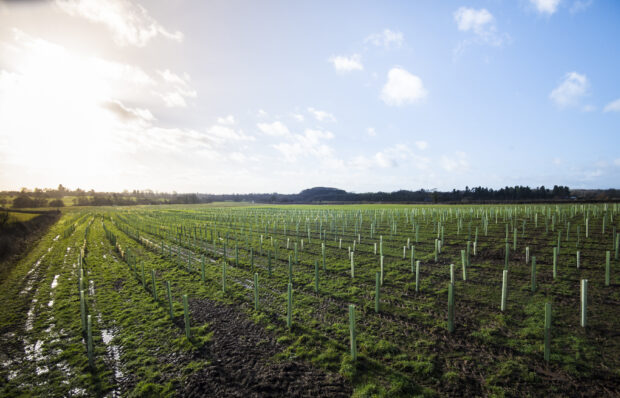
We’ve been growing our evidence base and creating new knowledge – with Forest Research as a UK Treescapes partner; and with the support of the independent Trees and Woodland Science Advisory Group, scientists and analysts have been creating a legacy of knowledge, data and understanding that will shape how things are done in the future.
Inside Defra, the team has grown and flourished, and built strong links with many policy colleagues inside the department and beyond, including Plant Health, the Farming Programme, colleagues in the Department for Energy Security and Net Zero, the Ministry of Housing, Communities and Local Government, HM Treasury and many more.
We have focused not only on planting targets but on transforming the sectors that support trees and forestry in England, so we can secure the greatest benefits for the environment and for people. Tree planting and management, access, green finance, health, resilience, surveillance, skills, nursery capacity, landscape, working with farmers and landowners to develop agroforestry and valuing the expert advice and collaboration of our stakeholders. It takes a village… (or a forest, in our case).
Examples of activity outside of tree planting, we have launched and Forestry Commission-led professional apprenticeship scheme, a Biosecure Procurement Pilot to ensure that plant health management standards are in place for nurseries supplying trees for EWCO and Tree Health Pilot restocking grants, and co-created the Timber in Construction Roadmap to set a path towards more domestic timber in our built environment. These are just a few of many excellent examples of how ‘Team Trees’ encompasses so many people, organisations and interests.
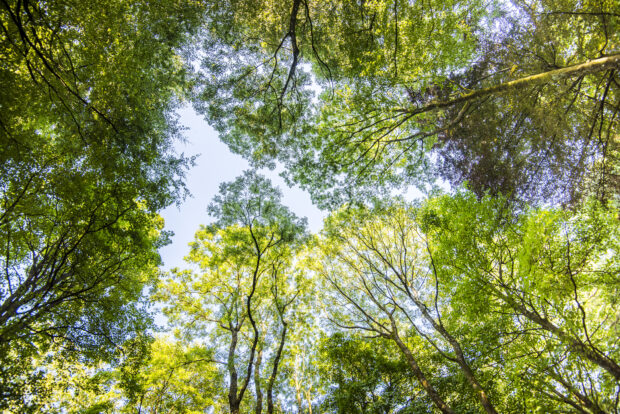
The new Secretary of State and Ministers
The new Secretary of State, Steve Reed, has outlined his five priorities for Defra: cleaning up UK’s waters, rivers and seas; zero waste and the circular economy; food security and helping farmers; preventing flooding and nature recovery. Team Trees will be supporting the delivery of these priorities, through continued working with delivery partners, ensuring that trees can make their contribution to these objectives.
Our longer-term work continues
Underpinning all our work is the legally binding target to increase tree and woodland canopy cover to at least 16.5% of England by 2050 – I like to call this ‘a law to plant trees.’
I am incredibly proud of all that we have achieved and I am equally sad to be writing my final blog as the head of Team Trees. It has been a privilege to build and lead the NCF Programme with my job share partner Naomi, who left just a few months ago to lead Landscapes and Forestry in the Welsh Government.
The next blog will come from my successor, Richard Chapman, who will pick up the baton with our brilliant team to support our new Ministers to deliver their priorities.
I’d like to thank all my Civil Service and public sector colleagues, our stakeholders and supporters, for their passion, commitment, hard work, challenge and expertise. I will miss this role hugely, but I know the future of England’s treescape is in safe hands.
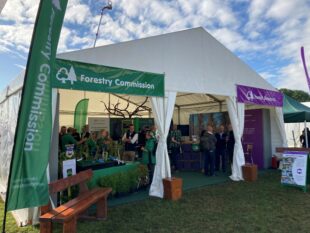
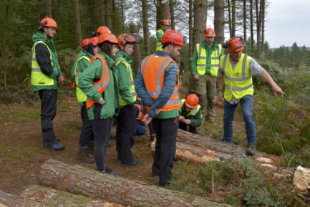
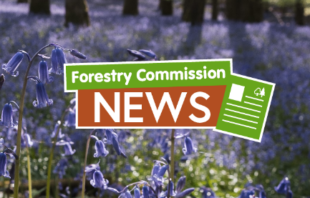
1 comment
Comment by Roderick Leslie posted on
Inspiring achievement - congratulations. We need to be looking more vigorously at the opportunities in the huge area of neglected woodland